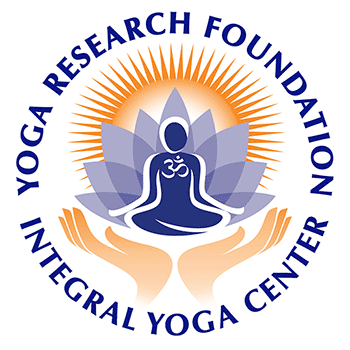
Questions & Answers
The Questions and Answers sections not only create a deeper awareness of spiritual life, but also help us understand how to respond to everyday problems.

From the Desk of Swami Jyotirmayananda
Questions and Answers
Isn't Happiness a by-product of living correctly?
Happiness that is a by-product of living is material happiness, but it is not the goal. The goal in life is to acquire that happiness which is the innate nature of the soul.
Union with God means that we would lose our personality?
Yes. A simple analogy is given of a river meeting the ocean. A river enters the ocean and what happens? Does it lose...
Is it considered good to die peacefully while asleep?
Since sleep is tamasic, isn't this really unfortunate? Is this destined for someone ruled by tamas so that he will ...
I practice self-control yet still become irritable and impatient.
It happens because you try to practice control without understanding. Understanding is more important than trying. Trying to control without using the proper technique...
Are mental repression or suppression ever necessary?
Repression and suppression are needed to a certain degree, with the ideal of sublimation. For example, a person is very hungry and is given poisonous food. All he wants to do is eat it.
Does repetition of mantra help control the mind?
A mantra consists of mystic syllables or words. Sounds in a particular mantra are related to certain psychic centers in your body known as chakras. (This is a scientific fact.)
QUESTION: Isn’t Happiness a By-Product of Living Correctly?
ANSWER: Happiness that is a by-product of living is material happiness, but it is not the goal. The goal in life is to acquire that happiness which is the innate nature of the soul.
Question: There are many people who are doing a great deal of service in the world and it seems they’re happy. Therefore, it would seem that their happiness is a by-product.
Answer: It seems like a by-product by doing good deeds. They are removing the obstacles to happiness. It is similar to removing the clouds and the sun shines forth. The shining of the sun is not the by-product of removing the clouds, yet you may say so in a figurative way. In the same way, when a person does good things his complexes are
dissolved, and as these complexes are being dissolved, his innate happiness shines forth. So it is an unraveling of innate happiness. If happiness were not deep within oneself, then it would be a difficult predicament. There would be no liberation actually.
Question: But people are living in this world, and it is not a happy world. All they can do is strive not to be unhappy.
Answer: That’s a good beginning to avoid pain. But to the extent that you avoid pain, to that extent certain positive forms of happiness begin to appear. Not all people are equally miserable; it depends upon different levels of evolution. In the midst of all suffering humanity, there are people who have purified their minds and are therefore closer to God within themselves. They are much happier. So positive happiness does exist. But to begin with, as long as you do not have the positive happiness, it is better to avoid pain and not to be deluded by illusory happiness.

QUESTION: Union with God means that we would lose our personality?
ANSWER: It means that, yes. A simple analogy is given of a river meeting the ocean. A river enters the ocean and what happens? Does it lose or does it gain? Both. From one point of view the river loses, because it no longer carries its name, but from another point of view it becomes one with the ocean. It is like a kind of loss, which is really not a loss. You lose something that has been built on the basis of a limited mind. It is the limited mind that has evolved ego-consciousness, and the more that ego-consciousness drowns in the sweetness of love, the greater the joy.

QUESTION: Is it considered good to die peacefully while asleep?
ANSWER: Generally it is considered fortunate for someone to die peacefully in his sleep. However, since sleep is tamasic, isn’t this really unfortunate? Is this destined for someone ruled by tamas so that he will go to hellish worlds?
Answer: Death in sleep does not necessarily mean that a person is dominated by tamas at the time of death. While tamas overpowers the body, the mind may continue to be under the influence of sattwa or rajas. Therefore, those who die in sleep may be either under sattwa or rajas and accordingly are led to higher or lower forms of consciousness (heaven or hell). From a normal point of view, a peaceful death in sleep is much better than death in a state of agony.
Further, as explained before, a sage who transcends the gunas may die in sleep, action, or meditation. In all these cases, he is beyond the gunas and unaffected by them.

QUESTION: I practice self-control yet still become irritable and impatient.
ANSWER: It happens because you are trying to practice control without understanding. Understanding is more important than trying. They try to control without using the proper technique. There is not any negative aspect of the mind that can be merely controlled. You should substitute a positive thought rather than try to drive away a negative one. In that way you are not trying to control with tension. You simply present an ideal before your mind and allow yourself to grow into it.

QUESTION: Is mental repression or suppression ever necessary?
ANSWER: Repression and suppression are needed to a certain degree, with the ideal of sublimation. For example, a person is very hungry and is given poisonous food. All he wants to do is eat it. You, being his friend and knowing it to be poisoned, first take it away from him whether he likes it or not. Then you begin to explain to him that the food is poisonous. The moment he understands, there is no tension. Ultimately, he thanks you.
Similarly, when the mind is dominated by anger, you want to speak all types of evil words, but by your reason you suppress it. When you suppress it, energy boils up within yourself. But try to understand that there is another project before you–by having suppressed the negative, you have opened the mind to something positive. If, however, you do not open your mind to something positive, then suppression is bad.

QUESTION: Does repetition of mantra help control the mind?
ANSWER: Repetition of mantra is an effective method of controlling the mind. A mantra consists of mystic syllables or words. Sounds in a particular mantra are related to certain psychic centers in your body known as chakras. (This is a scientific fact.) Some sounds are jarring to the mind. Some sounds are melodious. Also, words have a very strong influence over the mind. Some words, when spoken in a bitter way, can hurt a person–such is the power of words, that a friendship of many years can be broken in a few seconds just by words. On that basis the science of mantra has been developed. Sages discovered special words and recorded them. For example, “Om, Om, Om,” “Om Sri Ramaya Namah,” “Om Namah Shivaya,” and “Om Namo Narayanaya.” “Om” is the root-source of all mantras, and when you chant the “Om” mantra, it creates a special vibration, which begins to promote harmony in your body and mind.
A mantra is repeated with two attitudes–firstly you repeat the mantra verbally, and secondly, you start developing a feeling that what you are repeating is the name of the Absolute Self, the name of God. So in this way, with each repetition you are invoking the presence of the Divine Self. A mantra becomes like a short prayer, or constant affirmation of Divine Presence, constantly reminding you that you are in touch with God. If you do not have a mantra and if you simply say to yourself with feeling, “I am in touch with God, I am in touch with God,” it will in itself give you a sense of relaxation. But this is not a mantra. If you adopt or are initiated into a mantra, it is a more scientifically planned approach to Divinity, and practicing your mantra has a definite influence on your unconscious mind.

